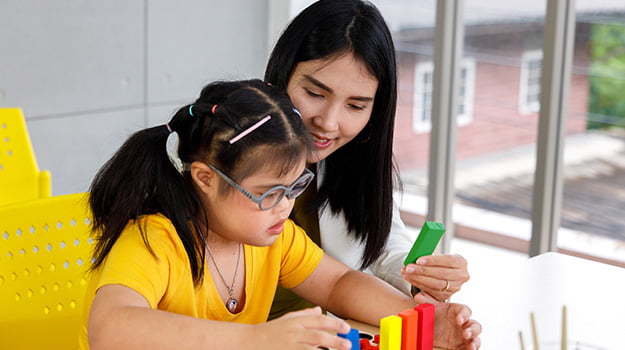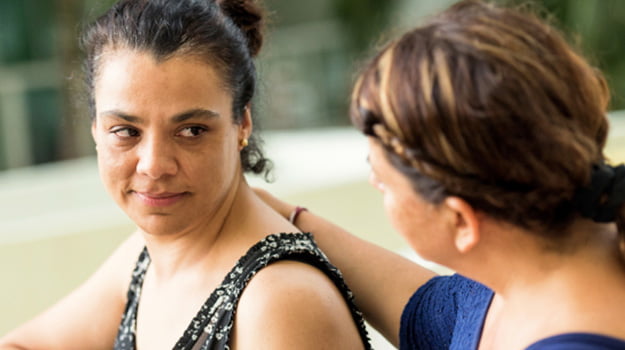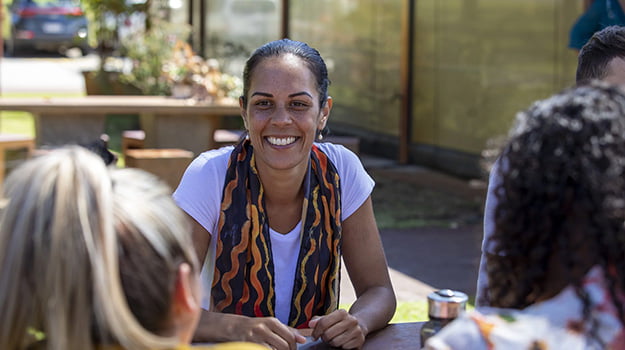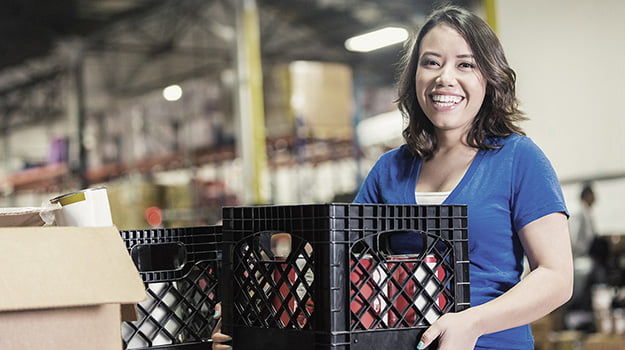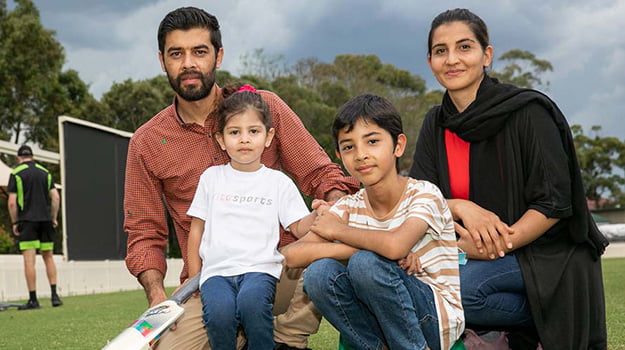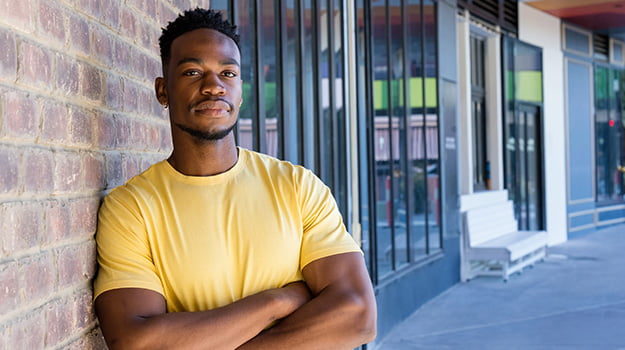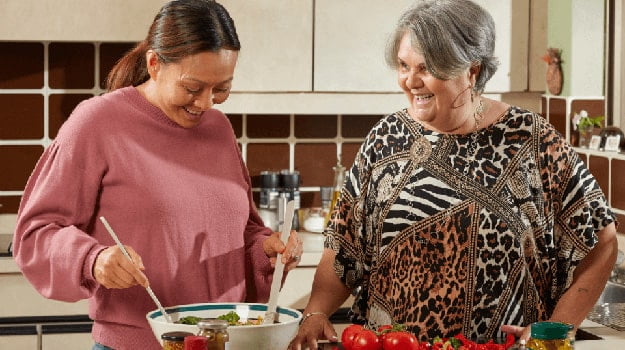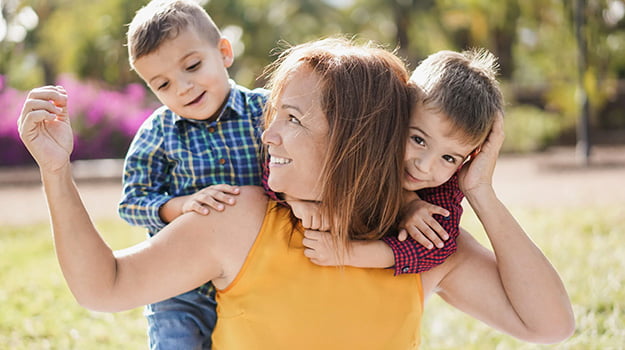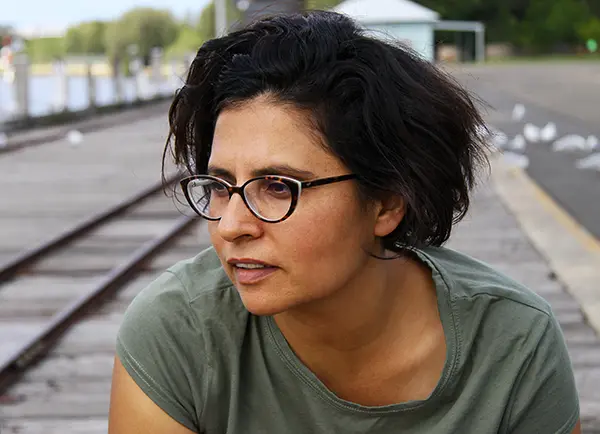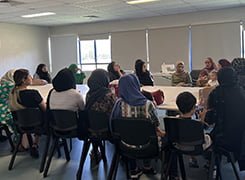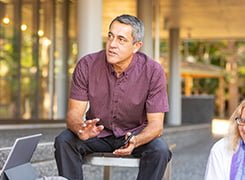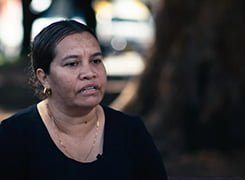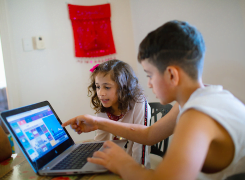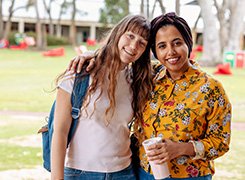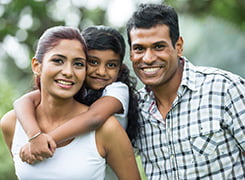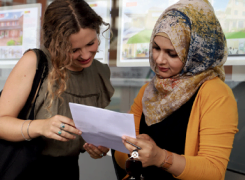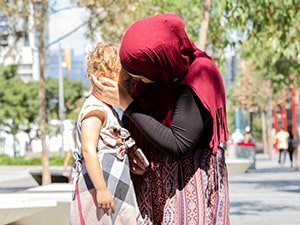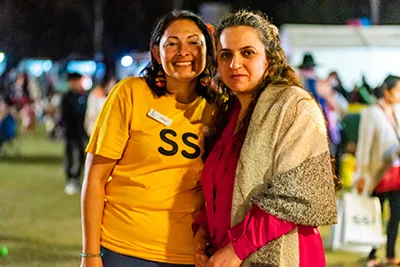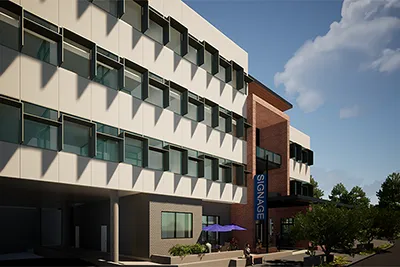An updated national disability strategy, released this week signals much-needed attention to building a more inclusive Australia.
(more…)The US suspension of its refugee resettlement program for ‘national security reasons’ sets a concerning precedent that risks creating harm and uncertainty for some of the world’s most vulnerable people.
(more…)Leading non-profit SSI congratulates David Crisafulli on becoming Queensland’s 41st Premier and the Liberal National Party on forming government, following this past weekend’s state election.

SSI has operated in Queensland since 1984, initially under the name Access Community Services. Through support in settlement, education and training, health and wellbeing, and dedicated commitment to community engagement, our organisation has been connecting people with opportunities and creating a place of belonging in Queensland for 40 years.
SSI CEO Violet Roumeliotis said it was heartening to see the Crisafulli government’s commitments to strengthening these communities, including allocating $5 million to Multicultural Connects Grant to build or upgrade community and sport facilities.
“This is an area of particular benefit for young people, something we see through our Multicultural Sports and Community Centre, which has a focus on disengaged youth, mental health and social cohesion.
“These spaces bring people together, providing a hub where community members can come together around a shared interest.”
Ms Roumeliotis also commended the incoming government for taking steps to strengthen Queensland’s vibrant community services sector, including by matching Labor’s commitment of $1.5 million in funding over four years to the Ethnic Communities Council of Queensland.
“In addition, the commitment to introduce new minimum contract terms for community sector contractual arrangements will ensure greater stability and certainty for our sector,” she said.
As a leading provider of human services designed to overcome inequality, SSI also welcomes the incoming government’s focus on the needs of children and young people.
This includes a $27 million professional foster carer pilot for children with complex needs; a new carer supervision model for residential out-of-home care and broader reform of the system; and an early intervention plan to keep at-risk teens out of crime.
Ms Roumeliotis acknowledged the efforts of the outgoing Miles Government to support communities to overcome inequality, including increasing funding to the Logan Maternity Hub, which supports refugee and migrant women through pregnancy and the first few months of motherhood.
“The outgoing government also funded a critical domestic and family violence (DFV) program, 99 Steps, which supports culturally and linguistically diverse women experiencing DFV.
“At present, this program only operates in Logan, but we hope that with continued government support, this can be expanded to other communities with high migrant and refugee cohorts,” she said.
SSI looks forward to working with the new Premier and his Government to continue to deliver and grow the services our joint constituencies’ need in order to overcome inequality and realise their full potential.
Significant recommendations in a parliamentary report tabled this week offer a call to action that would revitalise Australia’s migration policy, particularly when it comes to activating skilled migrants who are already in the country but blocked from using their full skillset, according to leading non-profit organisation Settlement Services International (SSI).
(more…)We are calling for urgent action to lift Australia’s humanitarian intake, as new research from United Nations High Commissioner for Refugees (UNHCR) shows the number of people experiencing forced displacement increased at a record-breaking rate in 2023.
The UNHCR’s Global Trends: Forced Displacement in 2023 has found that more than 117 million people were forcibly displaced by violence, conflict, and persecution in 2023 – up by almost 9 million people from the prior year.
Forced displacement is estimated to have continued rising in the first four months of 2024, likely surpassing 120 million by the end of April.
For the past 12 years, the UNHCR has recorded annual increases in forced displacement, with each year setting a new record.
This record-breaking displacement highlights the need for the Australian government to uplift the humanitarian intake to respond to pressing global need.
We are calling on the Australian government to meet its commitment to increase the humanitarian intake from 20,000 places to 27,000 places per annum.
Despite the rapidly growing need for resettlement places, the size of Australia’s Humanitarian Program had remained relatively stagnant for decades.
Scaling up the program would help address the significant global shortfall in resettlement places, reunite refugees already in Australia with their families, and showcase Australia’s commitment to being a responsible global citizen.
There is also widespread recognition globally of the need for a range of permanent and secure pathways for the growing numbers of refugees around the world. This includes complementary pathways such as community sponsorship. It is an innovative solution that enables everyday community members to step up to protect people displaced by conflict and persecution.
Australia’s refugee resettlement sector has the skills and expertise to quickly scale up and support an increased refugee intake. We simply ask the government to open the door.
Read the UNHCR’s full report here: https://www.unhcr.org/global-trends
SSI welcomes the Federal Government’s announcement of a new study that will tackle antisemitism, Islamophobia, and the experience of First Nations people within the Australian university sector. The study aims to examine racism in universities and provide recommendations to ensure the safety of students and staff members.
Australia needs to create a safe environment for everyone, irrespective of their language, race or cultural background.
What is clear from the growing evidence base is that racism is prevalent in Australian communities. Racism poses a significant social and economic threat to our country.
Efforts to support social cohesion must go beyond the positive promotion of multiculturalism and actively denounce racism.
We view this study, which will be led by the Race Discrimination Commissioner, as an important step towards better understanding the prevalence and impact of racism and, importantly, practical actions to reduce it.
SSI continues to call for a coordinated, national response to eliminate racism and promote social inclusion, both on campuses and across our country. Australia will be stronger and safer for it.
New funding announced in this week’s Federal Budget will offer some support to families fleeing the conflict in Gaza, many of whom are currently at risk of homelessness and poverty, according to non-profit organisation, Settlement Services International (SSI), which provides human services to around 50,000 people a year.
SSI welcomed the Federal Budget announcement of a $900k injection to extend Medicare eligibility to 30 June 2025 for Bridging Visa E holders arriving from affected areas of Israel and Palestine.
SSI CEO Violet Roumeliotis said families had escaped the crisis in Gaza only to arrive in Australia and find themselves largely reliant on charities like SSI, which is currently supporting close to 70 families.
“The situation in Gaza has worsened and worsened. With no hope of return, families are now navigating the process of applying for asylum in Australia, but in the meantime, their visa types mean they are mostly unable to work and ineligible for government support.
“At a time of rising costs of living, this has translated to families sleeping in cars, or living with 14 people in two-bedroom apartments,” she said.
“We welcome the extension of Medicare eligibility, noting however that most of the families we work with are currently not on visa types that are eligible for this support. More needs to be done so that refugees from Gaza receive the same support as people fleeing conflict in places like Ukraine.”
Ms Roumeliotis said it was encouraging to see broader measures to support people who are building new lives in Australia, such as a $120.9 million investment to strengthen the settlement sector and enhance outcomes for refugees and migrants.
“Robust on-arrival and settlement support is critical to ensuring newcomers are positioned to realise their full potential in Australia. It was welcome to see measures to this effect, including a modest increase in funding for some of the core settlement programs that support these outcomes,” she said.
“Disappointingly, the humanitarian intake will remain static at 20,000 places, despite record-breaking global numbers of people who are currently forcibly displaced from their homes by violence, conflict and persecution.
“A scale-up of our humanitarian intake is needed to meet the massive shortfall in resettlement places globally. It would also open up more opportunities for refugees already settled here to be reunited with family and, critically, allow Australia to demonstrate its credentials as a strong global citizen.”
Ms Roumeliotis said a strong theme of the budget was women’s safety, ranging from economic security to targeted violence prevention measures and more.
“It is a scary time to be a woman in Australia. An average of one Australian woman is violently killed every week, a significant portion of which occurs in intimate and family settings. There is no panacea for this, but this budget includes significant investment to make women’s lives safer and more equitable,” she said.
Ms Roumeliotis said SSI welcomed a number of other budget measures designed to improve access and equity in Australia, including:
- $27 million over three years to extend targeted support for Youth Transition Support services, which assist refugee and migrant youth to access education, employment and government services.
- $253.6 million over five years to reform employment services and supports for people with disability.
- $468.7 million over five years to support people with disability and get the NDIS back on track.
$925.2 million over five years to improve financial support, safety assessments and referrals to support services for victim-survivors leaving a violent intimate partner relationship.
Media enquiries:
Hannah Gartrell, Head of Executive Communications and Media
M: 0423 965 956 E: hgartrell@ssi.org.au
SSI welcomes the vision set out in the Federal Government’s newly released Early Years Strategy as a step towards early childhood policies, programs and services that will support the best outcomes for all children, regardless of their backgrounds.
This Early Years Strategy is underpinned by the principles of equity and inclusion, including a commitment to provide foundational supports to children with potential developmental delays and to address these concerns early.
We also commend the focus on maintaining children’s identities and cultural connections. This sits alongside a commitment to empower parents, caregivers and families in ways that are culturally responsive and targeted – something we see the importance of throughout our work with culturally diverse families, including as part of the national Community Hubs program.
From our work delivering place-based initiatives such as our involvement in Logan Together, we recognise the importance of local solutions for local problems, reflected in the Strategy.
Importantly, this is Australia’s first Early Years Strategy to strengthen accountability, coordination and collaboration across all levels of government over the next 10 years, setting a clear roadmap for change with action plans and an outcomes framework to monitor and track progress. SSI looks forward to being part of these collaborative initiatives and translating them into tangible outcomes for all Australian children.
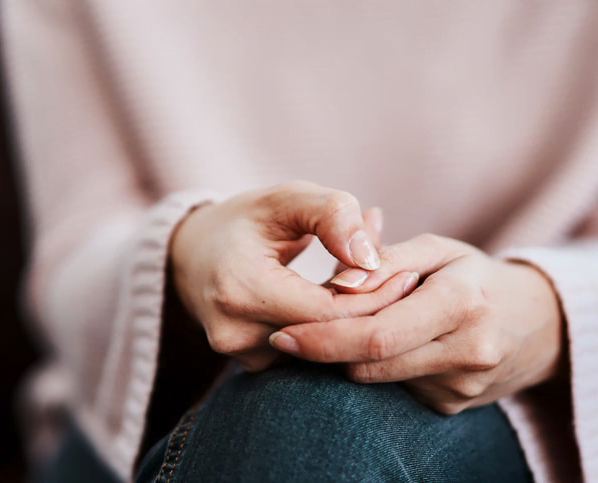
SSI welcomes the NSW Government’s funding package of $230 million over four years as an essential initial response and immediate action to support meaningful, real solutions that will keep women and children in the state safe.
SSI further welcomes the comprehensive nature of the package encompassing prevention, early intervention, crisis response, justice system improvements, and service sector support for enhanced capacity. It is particularly heartening to see funding targeted towards children who are often overlooked in the development of government policy, particularly those from multicultural backgrounds.
It is critical that our safety systems and services are responsive to communities in all their diversity. At present, the system is complex and difficult to navigate for multicultural communities, particularly those who are new to Australia.
Working with migrant, refugee and multicultural communities, we see firsthand the importance of integrated services and case management in support of women impacted by gender-based violence.
SSI provides culturally responsive safety services to migrant and refugee women and children, works with multicultural communities to design and implement awareness raising initiatives, and builds capacity of settlement services to support women, children and families.
We urge the NSW government to ensure that equitable access, experience and outcomes—including specifically for migrant and refugee women and children—are central to the implementation of the package and are embedded in the ongoing focus on addressing the crisis in the state of women’s and family safety.
SSI is committed to working with the NSW government and the specialist domestic, family and sexual violence sector to ensure meaningful collaboration in tackling the root causes of this crisis and to bring about a positive change for all women and children.
Reforms announced yesterday could bring Australia closer towards realising a migration program that meets the needs of industry, employers and migrants alike, while retaining our reputation as a destination of choice, according to leading non-profit organisation Settlement Services International (SSI).
(more…)
